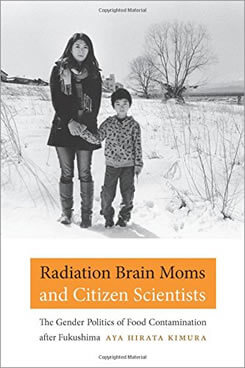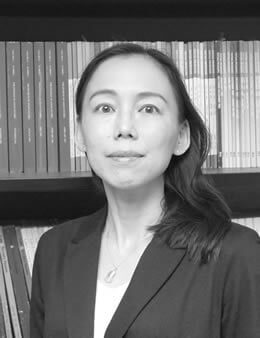Carson Prize 2019: Aya Kimura
We are delighted to announce that the 2019 Rachel Carson Prize goes to Aya Kimura, for Radiation Brain Moms and Citizen Scientists: The Gender Politics of Food Contamination (Duke University Press, 2016). The Award Committee received 62 books to consider for the prize and shortlisted 7 works for this year’s prize, evaluating books for their overall scholarly quality, their contributions to the field of Science and Technology Studies, and their capacity to cast social or political issues in a new light. We found Radiation Brain Moms and Citizen Scientists to be exemplary across all three of these criteria.
Kimura’s book contributes to the fields of feminist science studies, food studies, citizen science and disaster studies. Her story follows the efforts of activists, scientists and everyday citizens to challenge government claims of food safety after Fukushima. Kimura accounts for how mothers, who were deeply involved in this movement, were condemned as irrational for spreading harmful rumors that hurt the national economy and challenged recovery. By drawing out the constraints of performing citizen science in Japan’s unique cultural and political context, the book connects neoliberalism, scientism and post-feminism in the face of state food policing after the disaster. The committee felt this book was a unique theoretical contribution that reached past the particulars of this case study as a caution to scholars and practitioners about the challenges of citizen science.

For all its contributions, we are pleased and honored to recognize Aya Kimura, Radiation Brain Moms and Citizen Scientists: The Gender Politics of Food Contamination, with the 2019 Rachel Carson Prize.
2019 Carson Prize Committee: Roopali Phadke (Chair, Macalester College, US), Gloria Baigorrotegui, (Univ. de Santiago de Chile, Chile), Gwen Ottinger (Drexel Univ., US) , and Rohit Negi (Ambedkar Univ., Delhi, India)
Acceptance Statement
I was speechless when I received an email about this award. What an honor to receive an award named after Rachel Carson! Growing up outside of the US -in Japan and Singapore- Carson’s courage to confront complicity and point out the creation of unlivable environments rang no less inspiring to me as a kid. I am grateful to the committee members for this and for the honor to be among such an incredible list of past recipients.
My book deals with questions on the relationships between gender, technoscience, and activism. But it is also borne out of pressing questions that my family members and friends were grappling with in their daily lives and sometimes asked me in emails and Skype calls as the Fukushima nuclear accident unfolded. The authorities said the situation was under control but what should we do? Radiation Brain Moms and Citizen Scientists describes how citizens had to resort to voluntary monitoring. Women were harshly critiqued as irrational and over-reacting when they expressed concerns and those concerns were refashioned as the cause for the health impacts of the nuclear accident. The book also tells a difficult story of how citizen monitoring can be both empowering and restricting. Monitoring provides environmental data that is more trustworthy and fine-grained, but the broader trend of responsibilization of environmental monitoring and harm reduction also complicates its politics.
Ishimure Michiko, who is often described as Japan’s Rachel Carson wrote how in Minamata where a corporation polluted the sea with mercury discharge, the disease not only made people extremely sick but also forced them to confront the apparatus that took them so entirely that involved layers of power- the state, science, capitalism, and modernity. I want to thank so many interlocutors in Japan who had to confront and experience such an entrenched apparatus after the nuclear accident but nonetheless willing to share their stories– arigatougozaimasu. Writing these stories are probably hard in any language, but as a non-native English speaker, I faced much self doubt about my efficacy. So special thanks to encouraging mentors –many of whom are in 4S, colleagues at the University of Hawai`i at Mnoa, Courtney Berger at the Duke University Press, and of course, my family. Thank you!
Bio
Aya H. Kimura is Associate Professor of Sociology at University of Hawai`i-Mnoa. She is the author of Hidden Hunger: Gender and Politics of Smarter Foods (Cornell University Press, 2013/ winner of Fred Buttel Outstanding Scholarly Award of the Rural Sociological Society) and co-editor of Food and Power: Visioning Food Democracy in Hawai‘i with Krisna Suryanata (UH Press, 2016). She is co-author of the forthcoming book, Science by the People: Participation, Power, and the Politics of Environmental Knowledge with Abby Kinchy (Rutgers University Press). She has a Ph.D. in Sociology/Rural Sociology from the University of Wisconsin-Madison and MA in Environmental Studies at Yale University.

